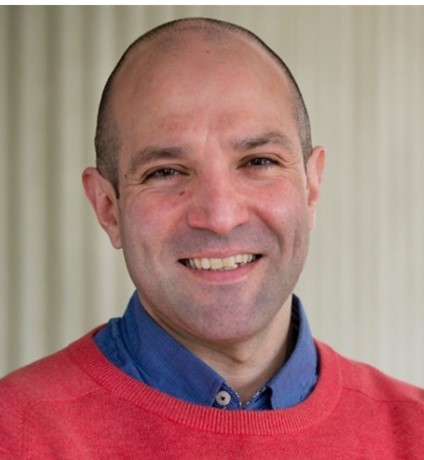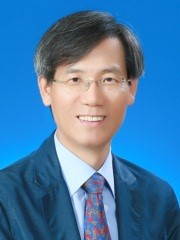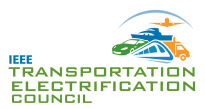Transportation Electrification Community - Education – Inaugural Column
In the last months, there has been a key topic in the news: the shortage of semiconductor chips affecting the automotive industry. We could further elaborate, but something that I found interesting is how different is the approach of the media when reporting about power semiconductors. Being an early career academic, probably means that I am too biased towards publishing my research and sometimes I do not remember that what is interesting to me may not be interesting to a global audience or it may be interesting but at different levels.
We check the news and we read about a new 200 mm Silicon Carbide Manufacturing Facility in the Mohawk Valley [1], wireless charging of electric vehicles and drones [2, 3] as well as extreme fast charging and its challenges [4], the role of mega battery factories in the future of electrification [5] and do not forget about autonomous vehicles [6].
As an early career academic, I may be a bit biased towards research, but something that is worth remarking is that all these topics are not only interesting at the research level. Yes, they may provide research avenues for a wide number of Ph.D. students around the world, and very interesting journal and conference publications, but they will also provide a broad range of job opportunities for graduate students. For example, you may be developing new semiconductor devices using new materials like Gallium Oxide, new battery technologies, designing wireless chargers and drones… And much more!
Communication skills are also fundamental, and it is not only a matter of quality of research. How to present your research project to a wider audience in an engaging way and making it easy to understand for people without knowledge in the research topic is key. An example of this is the IEEE Transportation Electrification Community (TEC) Ph.D. Thesis Talk Award, where you have to present your Ph.D. research in just 3 minutes. This is an international competition, and the 2021 winners are given below.
- Integrating Various Operating Conditions into Real-Time Identification and Energy Management of a Fuel Cell Vehicle by Mohsen Kandidayeni, Université du Québec à Trois-Rivières (University of Quebec in Trois-Rivieres), Canada
- Fault Diagnosis and Fault-Tolerant Control of Multiphase Motor Drives by Xueqing Wang, Southeast University, China
- Modulation and Control of Modular Multilevel Converters for Transportation Electrification by Deepak Ronanki, OntarioTech University
The 2022 competition is about to open for submissions, so keep an eye on the IEEE TEC website.
Finally, focusing on opportunities for education the increasing interest in the content that is accessible online. These include webinars, tutorials, podcasts, and blog/column series where experts present their views on a topic of interest. The IEEE TEC has organized both webinars and is now looking to expand its dissemination activities, including social media and open online platforms (like YouTube of TikTok) and Podcasts.
Last, but not least, this Education Column will invite international contributors to present their views on different topics and how they are considered from an education perspective. The next columns, already in the pipeline, will discuss the role of the manufacturing supply chain for power semiconductors (especially silicon carbide and its growing interest in the automotive industry) and the role of wireless charging for drone applications (including the converter topologies and power semiconductors used).
References
[1] https://www.wolfspeed.com/company/about/mohawk-valley-fab/ Accessed: 18th June 2022
[2] A. Mahesh, B. Chokkalingam and L. Mihet-Popa, "Inductive Wireless Power Transfer Charging for Electric Vehicles–A Review," in IEEE Access, vol. 9, pp. 137667-137713, 2021, doi: 10.1109/ACCESS.2021.3116678.
[3] P. K. Chittoor, B. Chokkalingam and L. Mihet-Popa, "A Review on UAV Wireless Charging: Fundamentals, Applications, Charging Techniques and Standards," in IEEE Access, vol. 9, pp. 69235-69266, 2021, doi: 10.1109/ACCESS.2021.3077041.
[4] https://www.nrel.gov/transportation/extreme-fast-charge-batteries.html Accessed: 18th June 2022
[5] L. Ulrich, "The Top 10 EV Battery Makers," IEEE Spectrum (Online), August 2021, https://spectrum.ieee.org/the-top-10-ev-battery-makers, Accessed: 18th June 2022
[6] R. Fannin "Where the billions spent on autonomous vehicles by U.S. and Chinese giants is heading," https://www.cnbc.com/2022/05/21/why-the-first-autonomous-vehicles-winners-wont-be-in-your-driveway.html May 2022, Accessed: 18th June 2022
Author:
 |
Dr. Jose Ortiz Gonzalez is an assistant professor at the University of Warwick. He is the author or co-author of more than 80 journal and conference papers. He worked as Research Assistant and Research Fellow in several projects both at the University of Warwick (UK) and the University of Vigo (Spain). His expertise is in power semiconductor device characterization, reliability, and condition monitoring in power electronics. Over the last years, Dr Ortiz Gonzalez has presented his work at the premier conferences in power electronics and power semiconductor devices. He organized a joint tutorial with Aalborg University at the EPE 2019 conference in Genoa, Italy titled ‘Prospects for Condition Monitoring Implementation in SiC Power MOSFETs’. He was part of the technical committee of the IEEE Energy Conversion Congress and Expo (ECCE) 2021 and 2022. |
About the Newsletter
Editors-in-Chief

Jin-Woo Ahn
Co-Editor-in-Chief

Sheldon Williamson
Co-Editor-in-Chief
TEC Call for Articles 2023 - Advances in Charging Systems
The TEC eNewsletter is now being indexed by Google Scholar and peer-reviewed articles are being submitted to IEEE Xplore.
To submit an article click here.


